The Games
The first modern Olympics were held in 1896 in Athens, their ancestral homeland. The two-week festival hosted 241 white, male European athletes in such gentlemanly sports as fencing, shooting and swimming. Things have changed.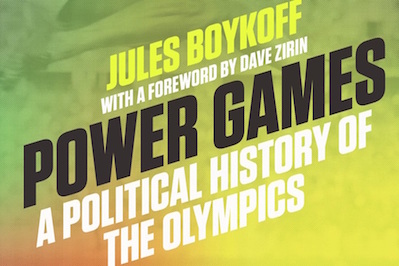
“The Games: A Global History of the Olympics” A book by David Goldblatt To see long excerpts from “The Games” at Google Books, click here.
“Power Games: A Political History of the Olympic Games” A book by Jules Boykoff To see long excerpts from “Power Games” at Google Books, click here.
Baron Pierre de Coubertin, the aristocratic founder of the International Olympic Committee, idealized his endeavor as a means of fostering global cooperation, spiritual enlightenment and gentlemanly sport. The Games in Rio de Janeiro seem notable for their bloated size, high costs, rampant commercialism and swirling controversy. One can imagine Coubertin’s thick broom-bristle mustache fluffing with indignation surveying the incomplete facilities, gigantic cost overruns, forced evictions, public health panics over the Zika virus and raw sewage in the water — not to mention corruption scandals over construction deals.
Yet, as two new books demonstrate, the modern Olympic Games have never really lived up to Coubertin’s romanticized vision. Jules Boykoff’s “Power Games” and David Goldblatt’s “The Games” describe a history marked by commercial tensions and political jousting.
The books take different routes to this destination. Boykoff barrels down the left lane. As much a tool for activists as a work of scholarship, his book relentlessly attacks the hypocrisy of the Olympic myth, and it insistently depicts the IOC as exploitative. By contrast, Goldblatt rambles along, bouncing from story to story, stopping for pleasurable diversions into the athletic action, circling around for nuanced perspectives on political events and power brokers. In the end, both arrive in Rio de Janeiro, where, both agree, the Olympics will do more harm than good.
Coubertin is a fascinating entree into the Olympic story. Goldblatt describes the young French baron as seeking not only his place in the world, “but also a grander and higher mission and purpose.” He was both a conservative emblem of the turn-of-the-century European aristocracy and a progressive iconoclast with lavish dreams of human uplift. After attending an English sports festival called the Much Wenlock Games, he resolved to revive the Olympics. Coubertin forced an awkward marriage between two ideas: an overriding moral imperative for international harmony and a pragmatic adoption of the British model of gentleman amateur sport.
The first modern Olympic Games were held in 1896 in Athens, their ancestral homeland. Reflecting the worldview of Coubertin’s organizing committee of aristocrats and educational reformers, the two-week festival hosted 241 white, male European athletes in such elite sports as fencing, shooting and swimming. The marathon — an entirely new race inspired by Herodotus’ ancient tale of the Battle of Marathon — lent these inaugural Games their highlight, as the Greek runner Spyridon Louis entered the stadium to the roars of 80,000 spectators.
If Athens captured the spirit for which Coubertin yearned, the next few Olympics embarrassed and frustrated him. In Paris in 1900, St. Louis in 1904 and London in 1908, the games piggybacked onto the World’s Fair, where the sporting competitions were overshadowed by popular amusements and techno-industrial marvels.
The Great War soon destroyed any notion that sport could transcend international disputes. In fact, what made the Olympics so appealing was the national pride engendered by gold medals. Goldblatt, a British scholar, has a particular eye for how the gung-ho competitiveness of Americans shaped international sport. When the country’s great track and field team returned from London, it got a ticker-tape parade in New York and an audience with Teddy Roosevelt. By the Paris Games of 1924, bigger crowds and the popular press were stirring up jingoistic pride, reflecting the emergence of the United States as a global power.
By the 1930s, the Olympics became what Goldblatt calls “a mediated spectacle, a vehicle for the creation and global distribution of ideas, imagery and messages.” The decade introduced the media-friendly traditions of medal stands, national anthems and the torch relay. The Los Angeles Games in 1932 were a Hollywood affair, with a substantial press operation and a conscious drive for civic promotion. The Berlin Games of 1936 featured a massive infrastructure investment from the state, a city scrubbed clean of its anti-Jewish propaganda and the acclaimed Leni Riefenstahl film “Olympia.” Sport served as propaganda for Hitler’s Nazi regime.
The Cold War sharpened the contradictions of the Olympics. While the United States and the Soviet Union approached each competition as a test of international supremacy, Avery Brundage, IOC president from 1952 to 1972, kept insisting that the Games were above politics. Through four Olympiads he forced East and West Germany to send a unified team, denying an obvious political reality. He could not manage the same compromise out of communist and nationalist China, however, and Egypt, Iraq and Lebanon boycotted the 1956 Melbourne Games after Israel’s invasion of Egypt. Brundage further vowed that the Olympics upheld amateurism, shielding his eyes from the Soviet Union’s state-sponsored training of its athletes.
Athletes, too, used the Olympics as political platforms. Famously, Tommie Smith and John Carlos gave the Black Power salute from the medal stand at the 1968 Mexico City Games, a demonstration that followed an international movement to ban apartheid South Africa from Olympic participation, as well as a proposed boycott by black athletes to protest racism in sports and beyond. But athletes had a longer tradition of Olympic activism. In 1906, after the Irishman Peter O’Connor won silver in the long jump while competing under the British flag, he shimmied up a flagpole and waved the Irish tricolor.Both Boykoff and Goldblatt also highlight several alternative Games that challenged the essential conservatism of the IOC. Between the World Wars, European cities hosted four popular Women’s Olympics, which compelled the IOC to include more women’s sports. There were various Workers’ Olympics, which were designed to uplift and unify the international working class, though they fell apart among the communist rivalries of the 1930s. In 1963, Indonesian President Sukarno hosted the Games of the New Emerging Forces, a sports festival built out of political defiance. It drew athletes from 48 nations, including Cuba, North Vietnam and “Arab Palestine.”
Politics kept defining Olympic history. In Munich in 1972, the radical group Black September kidnapped and killed 11 Israeli athletes. Nearly 30 African nations boycotted the 1976 Montreal Games to protest apartheid. The United States boycotted the Moscow Games in 1980, and the Soviet Union responded in kind for the Los Angeles Olympics of 1984.
Los Angeles also marked the beginnings of new corporate commercialism. For example, that summer McDonald’s ran a promotion called “When the U.S. Wins, You Win!” The burger chain issued scratch cards for each competition. If the United States medaled in that event, the customer would get a free Big Mac, fries or Coke. With most communist-bloc athletes absent, the United States dominated the Olympics, delivering its citizens not only national glory but also gobs of free fast food.
Juan Antonio Samaranch, IOC president from 1981 to 2001, transformed the Olympics. He concentrated his own power, maximized television and sponsor revenue, and quietly dispensed with amateurism. He ushered in what Boykoff calls “celebration capitalism,” where all the risks fall on the taxpayers of the host nations, and all the benefits accrue to the IOC and its private partners. As he describes it, “The normal rules of politics are temporarily suspended in the name of a media-trumpeted, hyper-commercial spectacle.”
Between them, Boykoff and Goldblatt describe the displacing of homeless people prior to the 1996 Atlanta Games, the huge debt foisted on Australia after the 2000 Sydney Games, the role of the 2004 Athens Olympics in the Greek financial crisis and the repressive security state for the 2008 Beijing Olympics. Now, in Rio de Janeiro, private developers are reaping profits and exploiting workers, while anti-Olympic protesters are treated like terrorists.
Is there a way forward? The scholar-activist Boykoff proposes various reforms, including an independent board to review economic-impact studies, a more democratic structure for the IOC and an emphasis on human rights in the selection of host cities. The wry, philosophical Goldblatt seems to question the very possibility of meaningful reform: Neither the IOC nor its partners — national sports bureaucracies, transnational corporations and the media — can act as agents of social change. If the Rio Games are fatty and spoiled, they are only an exaggerated version of their predecessors. As Goldblatt states, “The problem is the Olympics itself.”
Aram Goudsouzian is the author of “Down to the Crossroads: Civil Rights, Black Power, and the Meredith March Against Fear” and “King of the Court: Bill Russell and the Basketball Revolution.”
©2016, Washington Post Book World Service/Washington Post Writers Group
Your support matters…Independent journalism is under threat and overshadowed by heavily funded mainstream media.
You can help level the playing field. Become a member.
Your tax-deductible contribution keeps us digging beneath the headlines to give you thought-provoking, investigative reporting and analysis that unearths what's really happening- without compromise.
Give today to support our courageous, independent journalists.
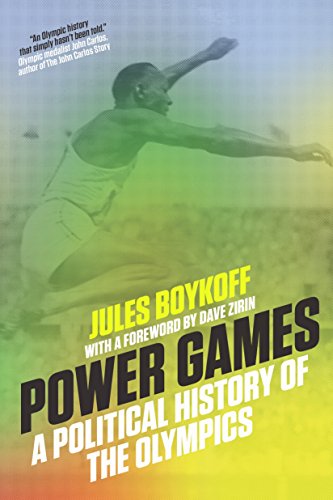

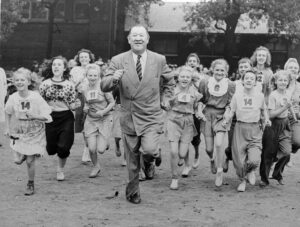

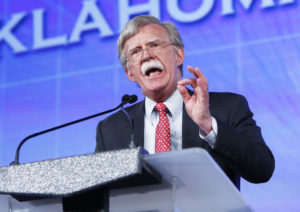

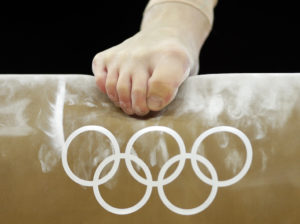
You need to be a supporter to comment.
There are currently no responses to this article.
Be the first to respond.